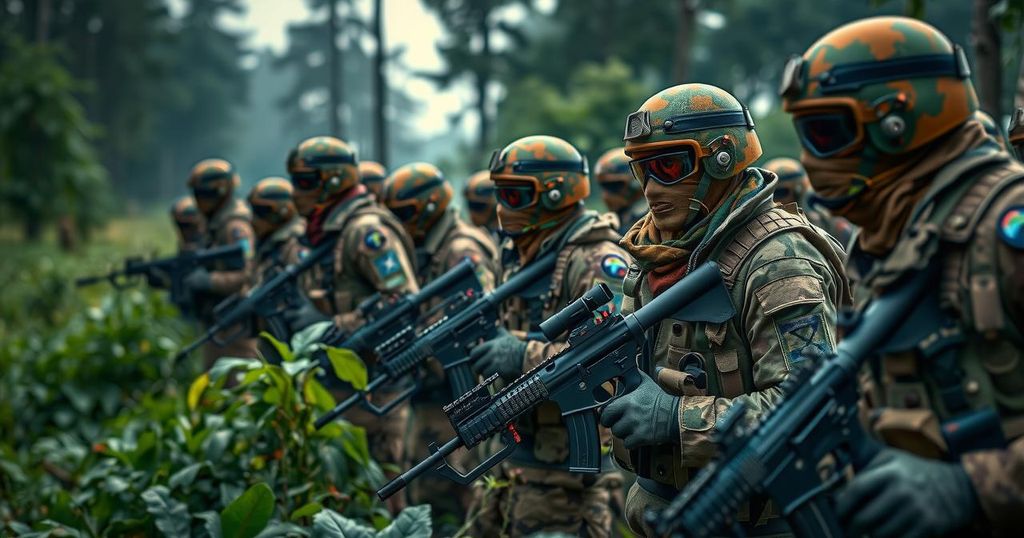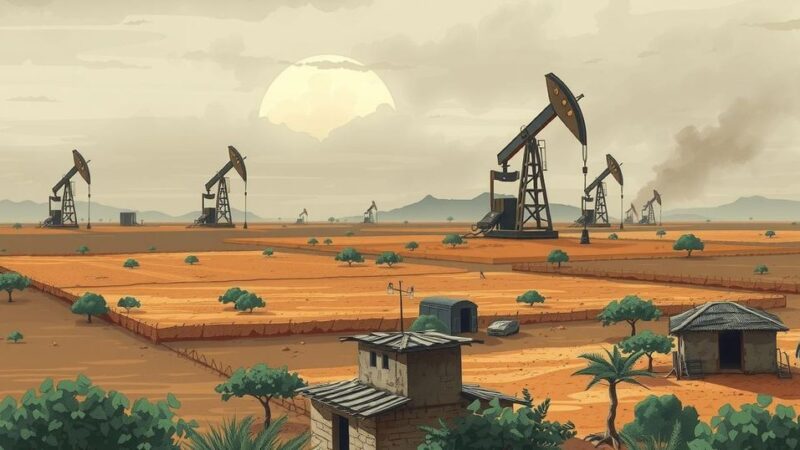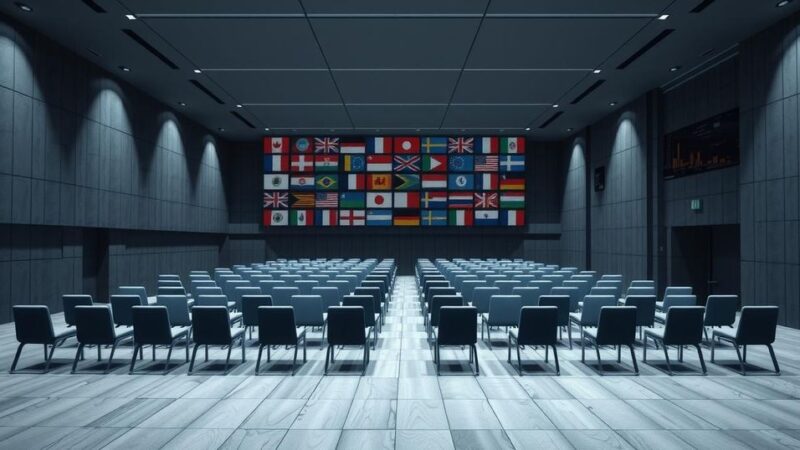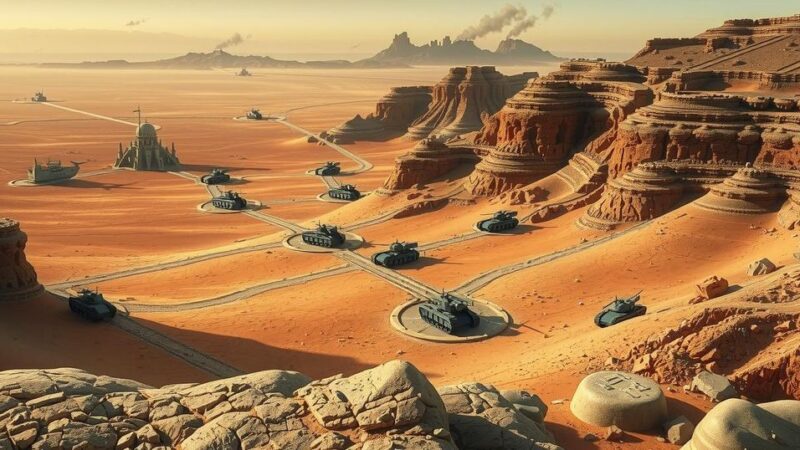The Rwandan-backed M23 rebel group in the Democratic Republic of the Congo seeks to establish local governance and authority rather than merely control mineral resources. The group’s strategies include undermining customary authorities, enforcing taxation, and controlling trade routes. Historical land disputes and local perceptions significantly influence the conflict, highlighting the necessity for long-term conflict resolution strategies that address these intricate community dynamics.
The recent activities of the M23 rebel group, which is reportedly supported by Rwanda, in the Democratic Republic of the Congo (DRC) are frequently portrayed through a narrow lens focused solely on the desire to control the abundant mineral resources in the eastern regions of the country. The M23 has been on the offensive since 2021, asserting control over significant portions of North Kivu province and effectively isolating the key city of Goma. While it is tempting to simplify the conflict as an extension of resource exploitation, our collaborative research, conducted alongside local experts and involving extensive field interviews in North Kivu, suggests a more nuanced narrative. The conventional narrative often overlooks the socio-political histories and local dynamics that drive the M23’s actions. The analysis reveals that the M23’s strategy is not merely about mineral control but encompasses broader ambitions for local power and governance. Crucially, M23 seeks to undermine existing local authorities, replace them with its appointed representatives, and establish a system of taxation to derive revenues that reinforce both its military and political influence in the region. The rebels exploit historical grievances surrounding land ownership, particularly involving Rwandophone communities, which date back to colonial policies encouraging migration from Rwanda. Our findings indicate that local governance structures have been severely disrupted, with M23 targeting customary chiefs and seizing control of local council functions. Furthermore, M23’s economic machinations include imposing taxes across various sectors, thereby extending their control over the local populace. The predicaments faced by local civilians are exacerbated by armed groups, including the ‘wazalendo’ militias collaborating with the Congolese army, who rely on civilians for sustenance, creating a heavily militarized taxation environment. M23’s control over strategic trade routes further complicates the situation, enhancing Rwanda’s interests while hindering Uganda’s ambitions in the region. The presence of M23 has generated a pivotal conflict dynamic where external and internal political competitions intertwine with local grievances. In conclusion, while minerals play a significant role in the ongoing conflict, understanding the historical context and local implications is crucial for developing effective conflict resolution strategies. Sustainable peace in North Kivu will necessitate enduring efforts focused on land access, security dynamics, and community reconciliation, which extend far beyond any potential military defeat of the M23.
The M23 rebel group’s activities in the Democratic Republic of the Congo, particularly in the resource-rich eastern regions, have often been described narrowly as a quest for mineral wealth. However, the complexities of the situation raise critical considerations about local authority issues, historical land disputes, and the socio-political dynamics at play between Rwandophone communities and indigenous groups. Understanding these factors is vital for analyzing the motivations behind M23’s actions and the broader implications of the conflict in North Kivu.
The evidence gathered highlights the need for conflict analyses that go beyond surface-level interpretations of resource control and consider the historical and local contexts that shape these conflicts. Effective resolutions to the ongoing struggles in the DRC, particularly regarding M23’s influence, will require engagement with community dynamics, restorative justice for land disputes, and the revitalization of customary authorities, thereby fostering conditions for lasting peace in the region.
Original Source: www.defenceweb.co.za






